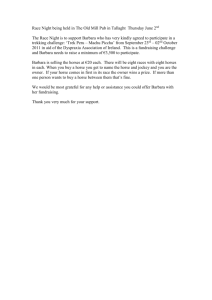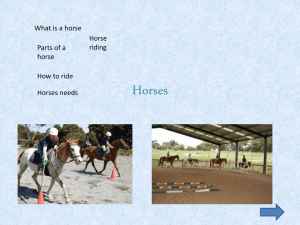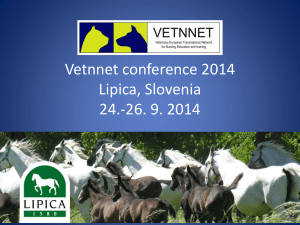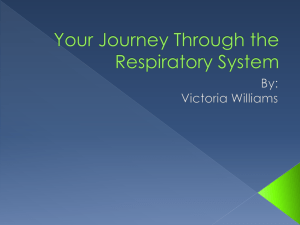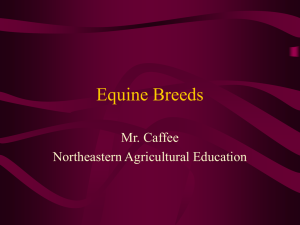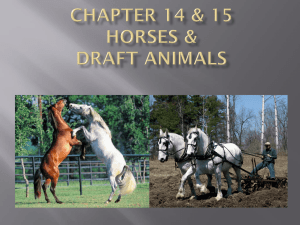Lesson 03A Facilities for Horses LP
advertisement
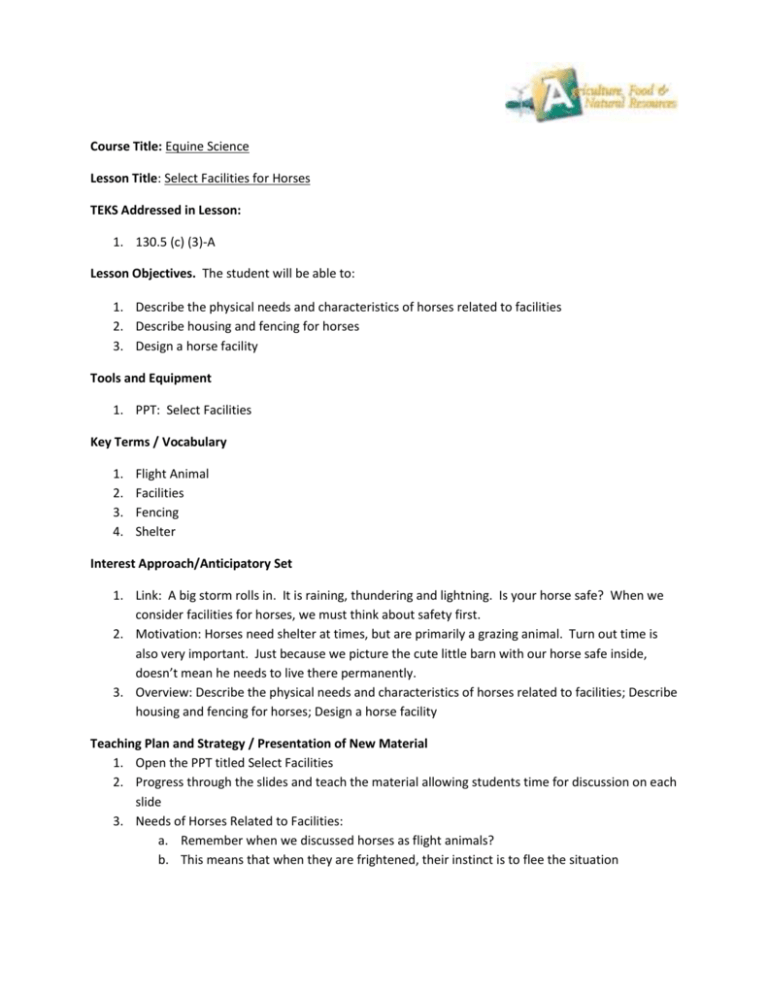
Course Title: Equine Science Lesson Title: Select Facilities for Horses TEKS Addressed in Lesson: 1. 130.5 (c) (3)-A Lesson Objectives. The student will be able to: 1. Describe the physical needs and characteristics of horses related to facilities 2. Describe housing and fencing for horses 3. Design a horse facility Tools and Equipment 1. PPT: Select Facilities Key Terms / Vocabulary 1. 2. 3. 4. Flight Animal Facilities Fencing Shelter Interest Approach/Anticipatory Set 1. Link: A big storm rolls in. It is raining, thundering and lightning. Is your horse safe? When we consider facilities for horses, we must think about safety first. 2. Motivation: Horses need shelter at times, but are primarily a grazing animal. Turn out time is also very important. Just because we picture the cute little barn with our horse safe inside, doesn’t mean he needs to live there permanently. 3. Overview: Describe the physical needs and characteristics of horses related to facilities; Describe housing and fencing for horses; Design a horse facility Teaching Plan and Strategy / Presentation of New Material 1. Open the PPT titled Select Facilities 2. Progress through the slides and teach the material allowing students time for discussion on each slide 3. Needs of Horses Related to Facilities: a. Remember when we discussed horses as flight animals? b. This means that when they are frightened, their instinct is to flee the situation c. Because of this, we must carefully design housing and fencing that is safe in the event the horse becomes frightened. d. They are also grazing animals. This means that their digestive system is well suited to constant grazing situations. e. If we plan to stall them, we must provide plenty of hay and roughage. 4. Housing for Horses—Simple to Fancy: a. When we think about what horse needs, a fancy barn may come to mind. b. Actually, horses should only be stalled in a barn when necessary. Typically this means when they are preparing for race or competition or when ill. c. Horses are made to graze—this means that a good pasture, with a shelter and safe fencing is certainly adequate for most horses. 5. Stalling a Horse: a. If we plan to stall the horse, it is important to be aware of the following: i. Space—the horse needs a minimum of 12x12 feet of stall space ii. Height—the height of the barn should be a minimum of 9 feet tall, taller if we have bigger horses iii. Safe—walls of the stall should be free from sharp objects, solid so no legs can get stuck, and have plenty of ventilation iv. Clean – the stalls should have fresh bedding (such as pine shavings) that are cleaned at least once per day. v. Turn out time—all horses should have access to turn out time for exercise and health. 6. Turning Out a Horse: a. If we plan to turn out the horse, it is important to be aware of the following: i. Space—the pasture needs to be large enough that the horse can walk around freely ii. Safe and Clean—the pasture should be free from debris, holes, and the fencing material should be horse ready. Wood, pipe, vinyl, slick wire, and horse wire are appropriate fencing materials. Use hot wire/tape with caution; avoid fencing with barbed wire iii. Shelter– pasture areas should have a shelter so that horses can escape rain, wind, sun, or other inclement weather. A shed with three sides and a roof is typically adequate for most climates Activity/Application/ Student Engagement /Laboratory 1. Horse Facilities Project: a. Using the resources provided, the internet or other resources, design a facility for horses. b. Be sure to include the fencing for turn out, barns, and sheds. c. Be detailed in your descriptions including the materials you choose to use as well as dimensions, etc. d. Teacher may provide Popsicle sticks or other materials to develop a 3-D facility. Students may also print materials from the internet or magazines. Evaluation / Summary 1. Questions for review: a. Why are horses prone to flee when afraid? They are flight animals that run from their prey or when frightened. b. Why do horses need shelter? Horses need shelter from storms, sun, etc. c. What is the primary factor considered in developing horse facilities? Safety d. Which type of fencing should we avoid? Barbed Wire 2. Summary: a. Safety is the primary consideration when developing any horse facility b. We have already learned that there is no such thing as a “cheap” horse; protecting our investment through the facilities we use is important. c. Whether we have a simple or fancy facility, the basic principles for safety, cleanliness, and space remain the same. References/Additional Materials / Extended Learning Opportunities/ Enrichment 1. Penn State Extension Horse Facility Design and Construction: http://extension.psu.edu/animals/equine/horse-facilities 2. Penn State Extension Horse Stables: http://extension.psu.edu/animals/equine/horsefacilities/horse-stables 3. Planning Horse Facilities: http://www.horsekeeping.com/horse_facilities/planning_horse_facilities.htm 4. Our First Horse: Facilities (by Purdue University): https://www.youtube.com/watch?v=MzLdEde6Ryc College & Career Readiness Standard: English Language Arts: II. Reading, B, 1-3. Developed by the Department of Agricultural Leadership, Education & Communications, Texas A&M University for the Texas Education Agency, Educational Excellence Project for AFNR ©Texas Education Agency, 2015

